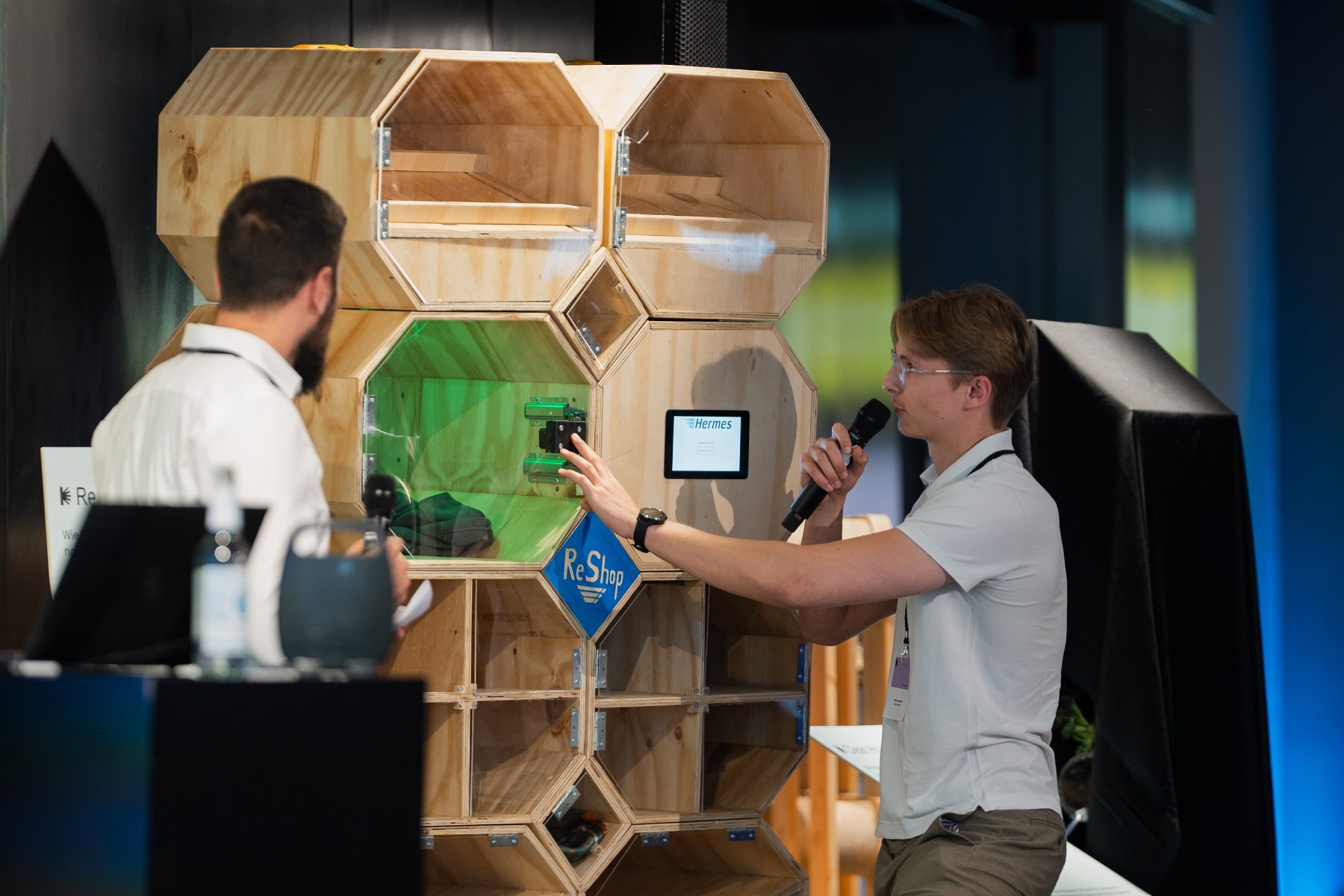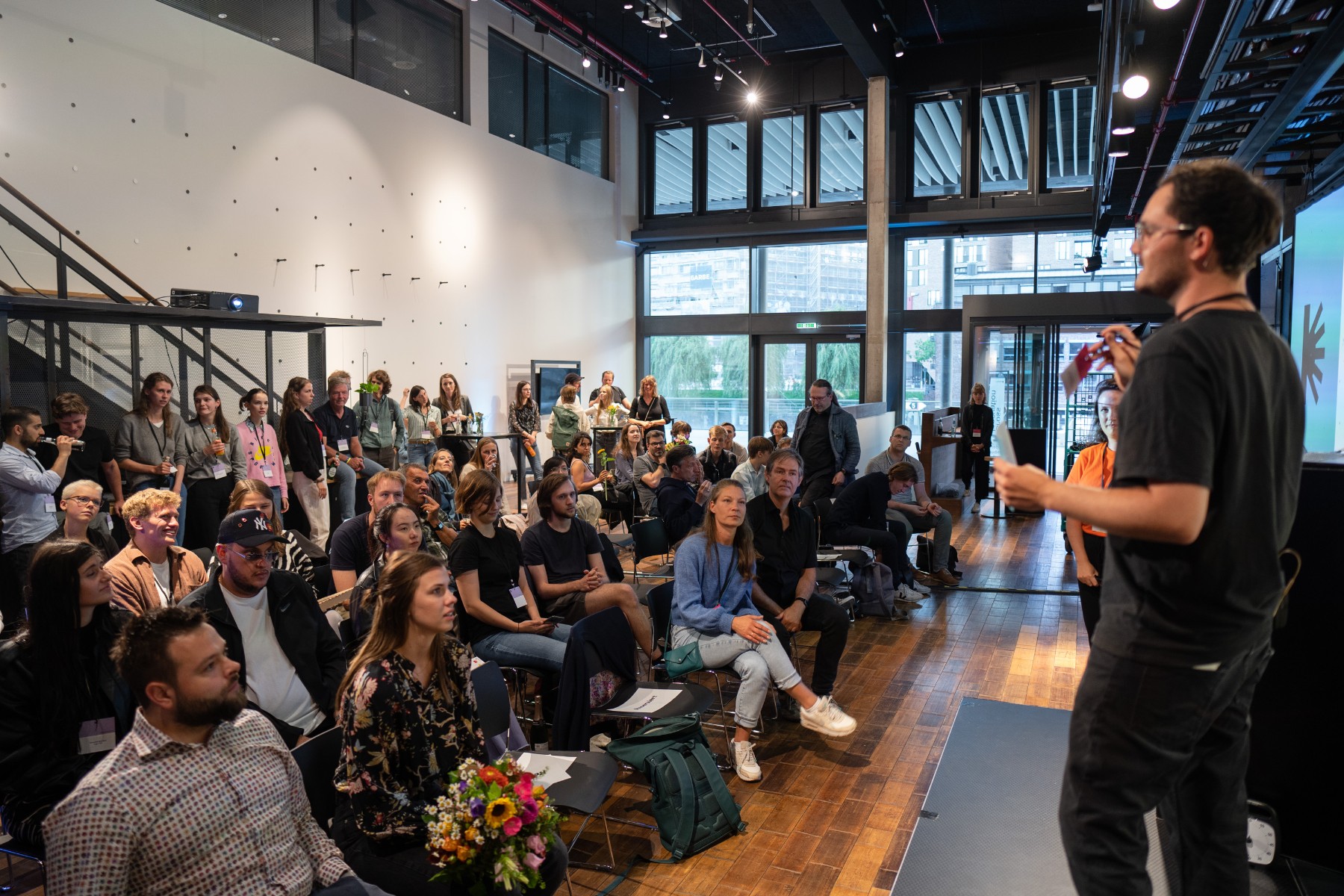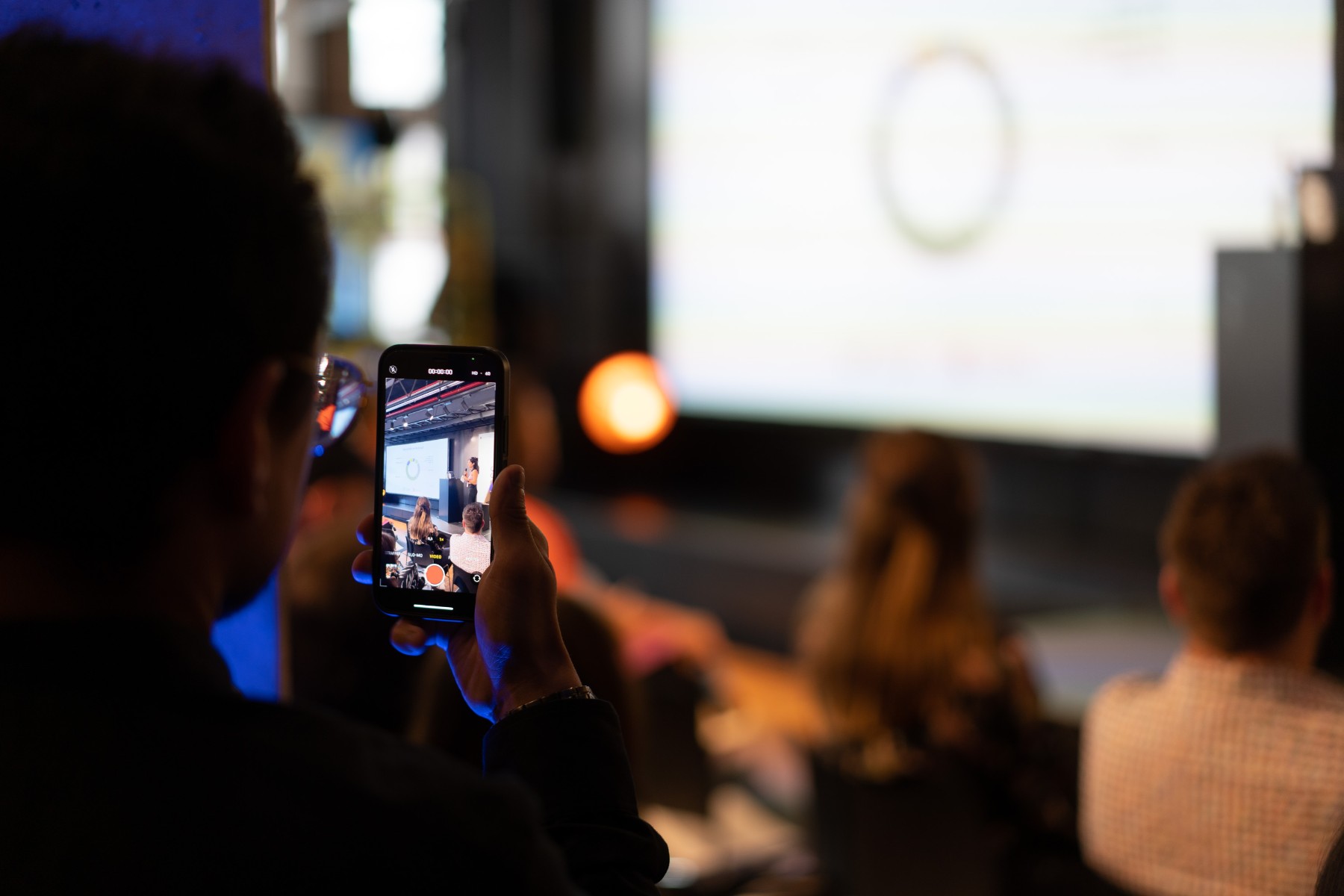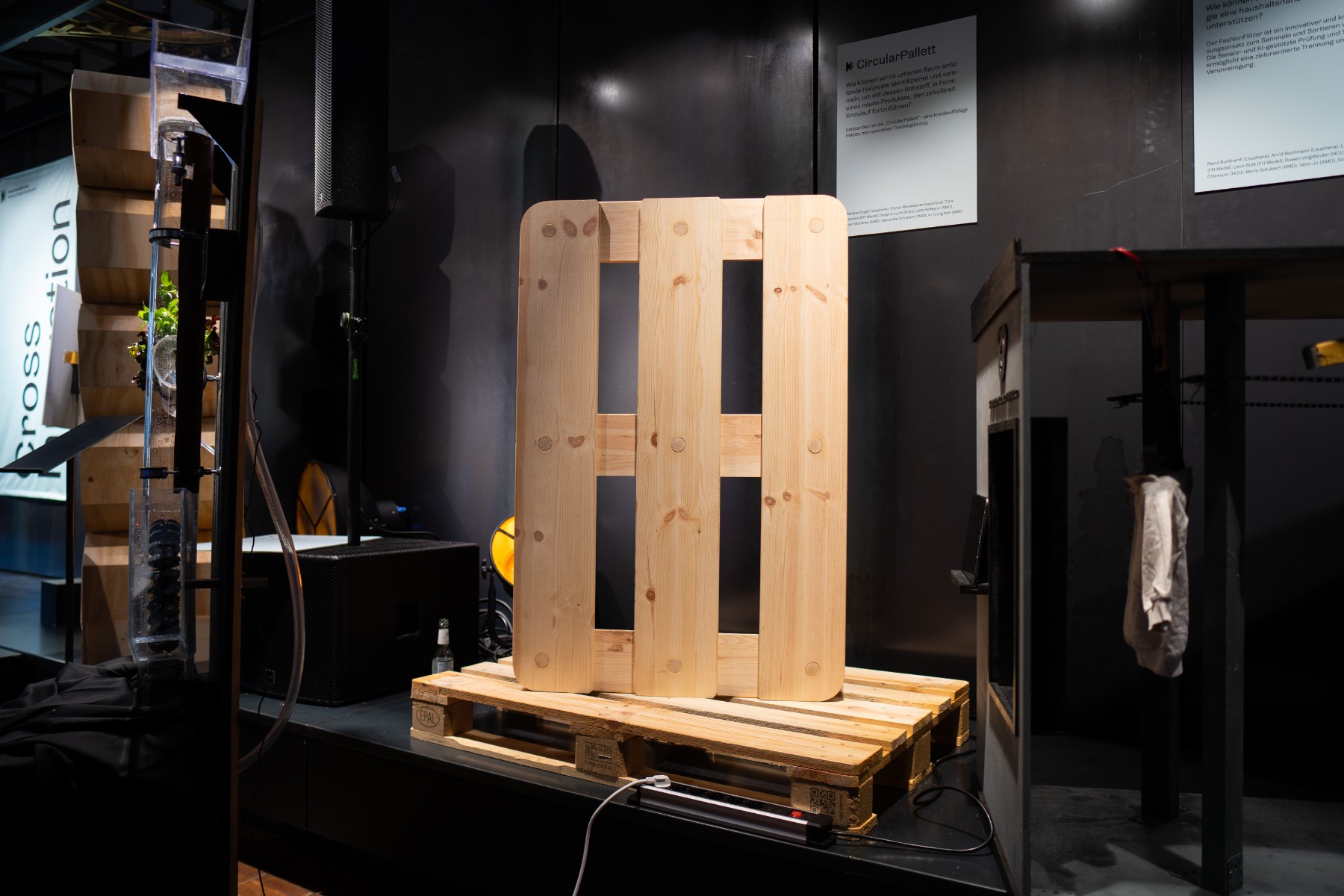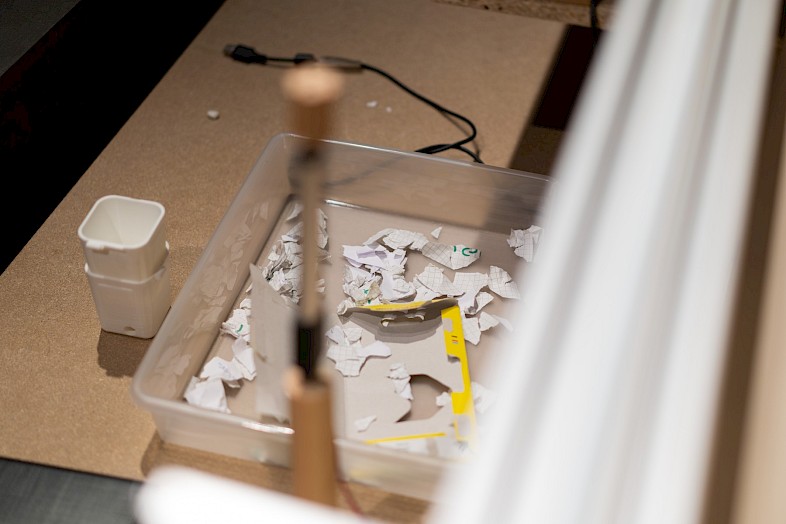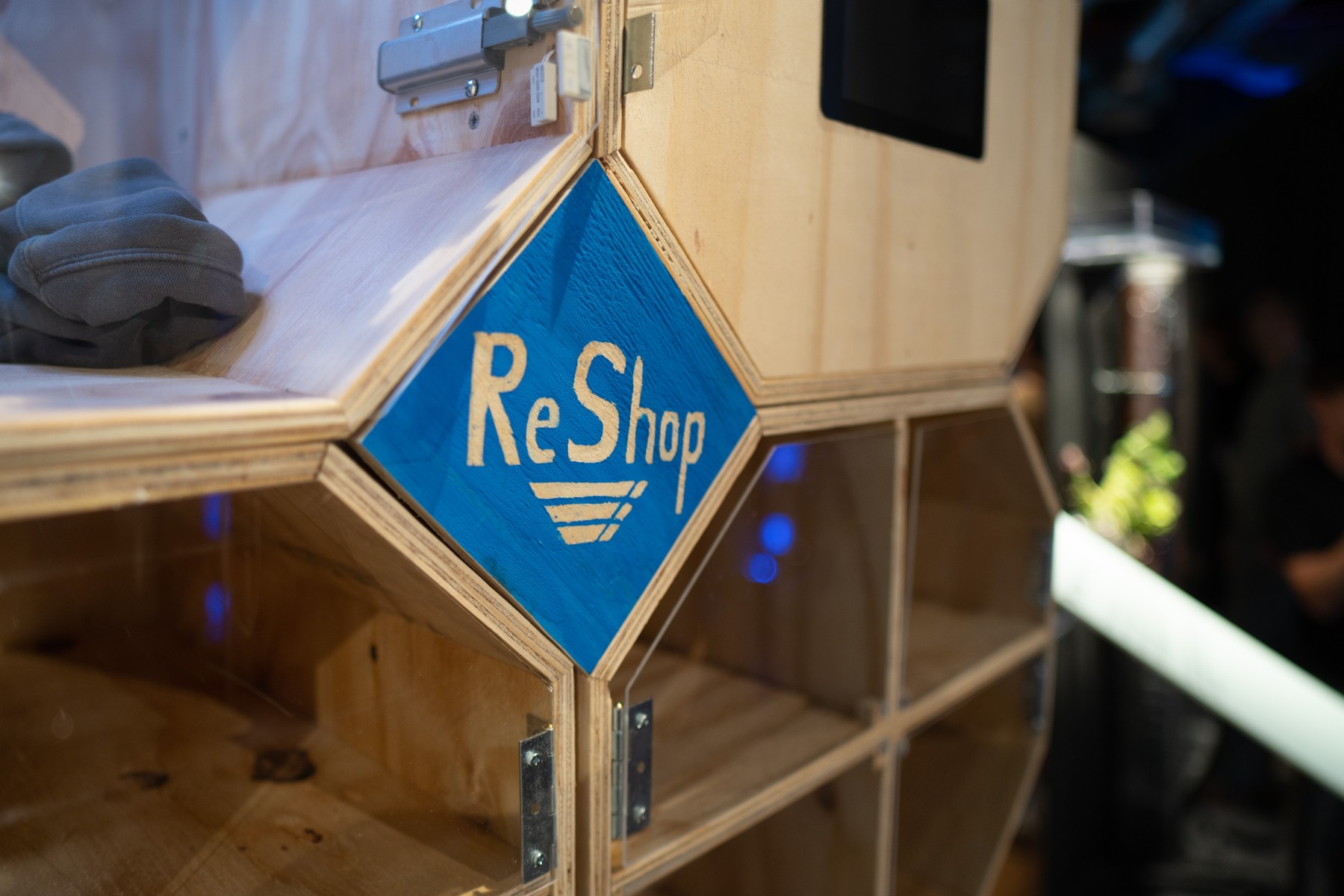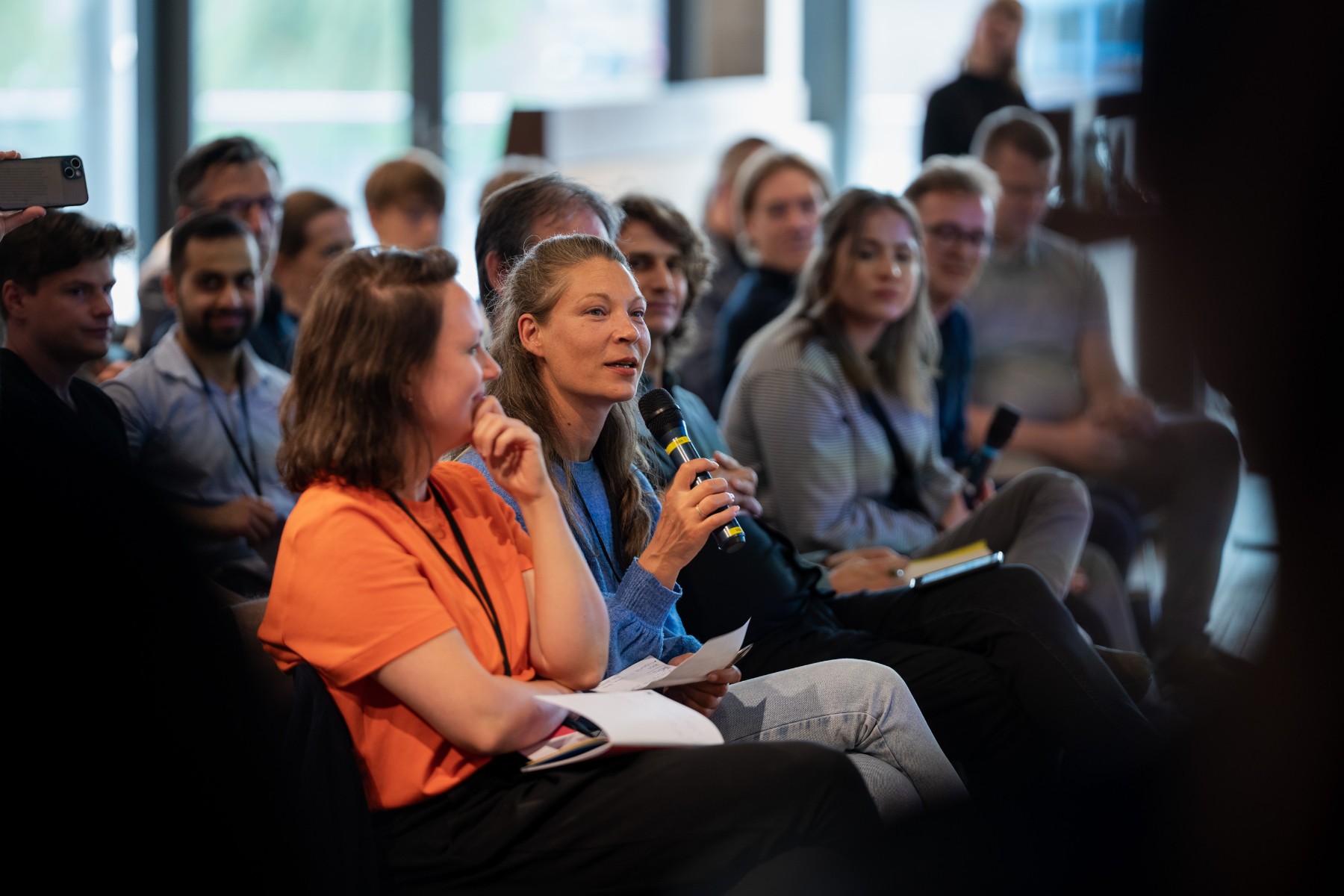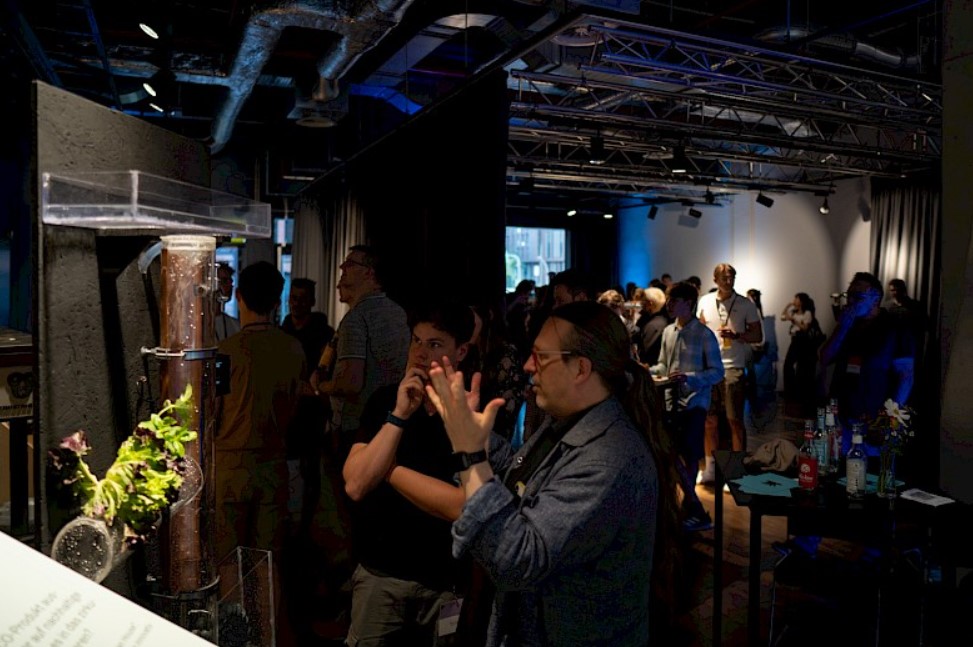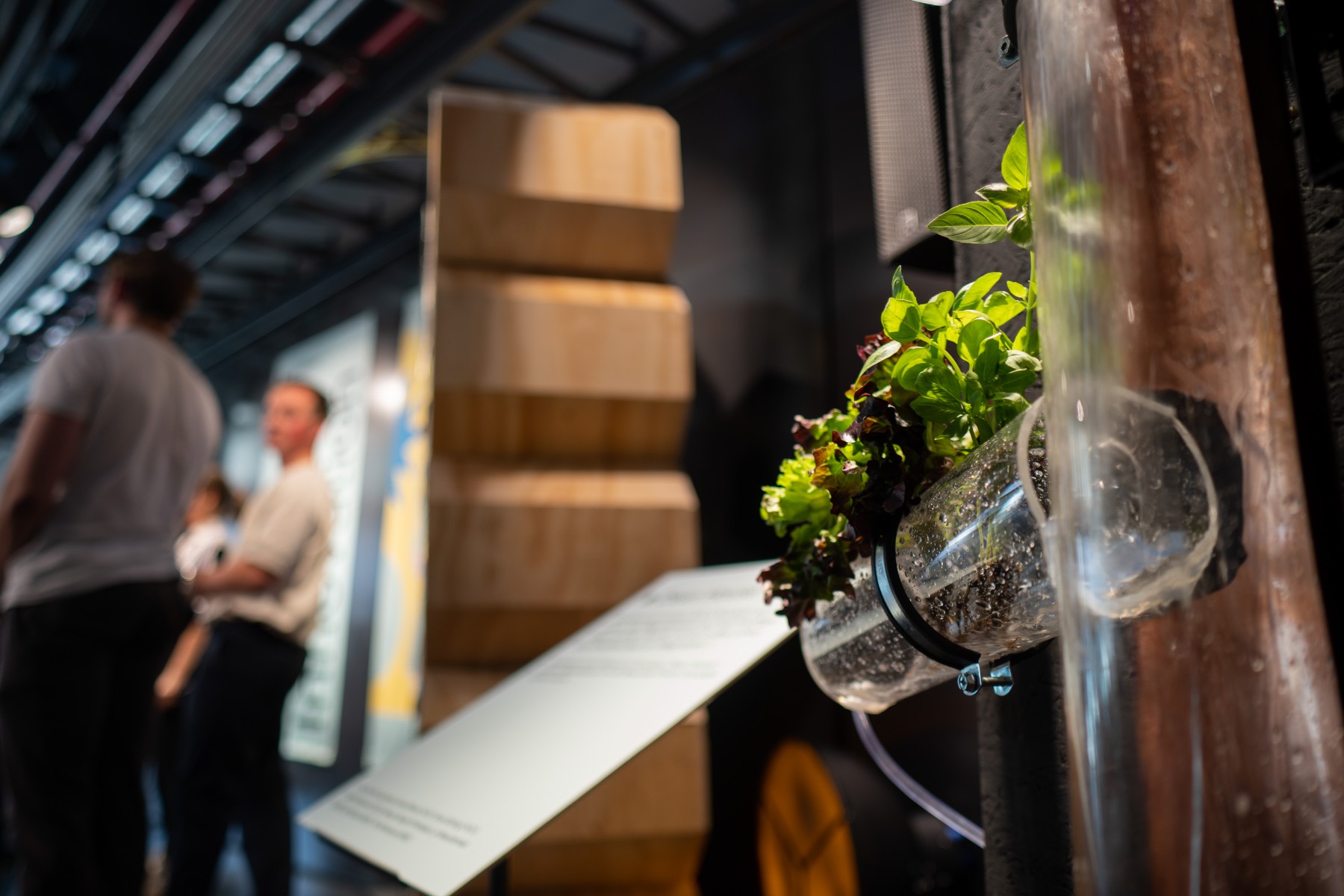There's a lot going on on the stage at the Design Zentrum Hamburg. Water splashes and motors rattle, glass doors swing open automatically and chip card readers beep. Perhaps a hundred people are sitting in front of the small platform, many of them young, some a little older. They are surrounded by metal stairs, bare concrete pillars, exposed exhaust shafts and bright red pipes hanging from the black-painted ceiling.
The industrial setting with an artistic touch suits the occasion. Because on this evening in mid-July, all kinds of prototypes will be presented at the Design Centre - small ideas with a big impact, so the attendees hope, solutions for today's problems, visions for tomorrow's life: How can we produce less waste? How can we protect our finite resources or at least manage them better? How can we ensure that we send the products we buy online from A to B and back again less often, thereby senselessly blowing CO2 into the air?
The Cross Innovation Class aims to find the right answers to these and other questions. The Cross Innovation Class is a programme of the Cross Innovation Hub of the Hamburg Kreativ Gesellschaft. The aim of the Cross Innovation Hub is to harness the creative power of local creatives for the economy. In the Cross Innovation Class format, for example, students from different universities and disciplines are brought together to design market-ready prototypes for companies.
